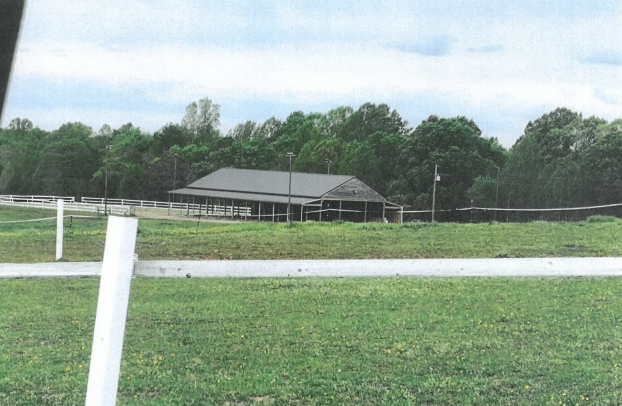Council makes decision about wastewater
Published 11:00 am Wednesday, August 21, 2024
|
Getting your Trinity Audio player ready...
|
The Town of Farmville will soon be switching to UV lights as a way of treating their wastewater. And during their Wednesday, Aug. 14 meeting, the council voted on a way to pay for the switch.
Farmville has treated its wastewater with chlorine gas for years, but after the leak two years ago, town staff had been researching alternative methods. And so earlier this month, they went to town council members with a proposal, requesting to switch to UV lights. The idea was that it would be both safer and cost effective.
When water comes into a treatment plant, it can have microorganisms inside. Typically, those have been eliminated in Farmville by using chemicals like chlorine. Instead of using chemicals, UV light shines on the water and changes the DNA of any microorganisms inside. It basically kills all of the germs and viruses or anything else that could be in the water. It’s a practice that’s been endorsed by the National Center for Biotechnology Information, as well as the National Sanitation Foundation. It’s also becoming harder and more expensive to find the chemicals needed to operate the wastewater treatment plant with chlorine.
While chlorine used to be between $400 to $500 per ton, now that’s gone up to $1,900 per ton. And you can’t release water filled with chlorine back into the river, so after the chlorine does its job, you put another chemical, sulfur dioxide, into the treatment plant to kill the chlorine. Before COVID, a ton of sulfur dioxide was $300. Now it’s $1,700 a ton.
BREAKING DOWN THE FINANCES
During the Aug. 14 meeting, Farmville Finance Director Julie Moore detailed how much the town would have saved in each of the last three fiscal years, had they used UV lights rather than chlorine at the plant. In 2022, she said, Farmville spent $103,338.72 on chemicals for the plant. If the town had been using UV lights, $18,075.09 would have been saved. In 2023, the amount spent on chemicals added up to $109,364.52. As such, with UV lights, Farmville would have saved $24,966.45. And for this last fiscal year, Farmville spent $112,147 on chemicals for the plant. Using UV lights would have saved $22,371.63.
So by switching to using UV light, the town would both eliminate the need to use all these chemicals and save the money involved with buying them. However, the new UV system isn’t cheap. By itself, it would cost between $2.5 million to $3.5 million to purchase. And Farmville as of yet doesn’t know where it would fall in that range. To help figure that out, the council agreed to hire TRC Companies out of Richmond at a cost of $123,270. In return, the group will develop a plan on how to convert the system and where in that $2.5 to $3.5 million range it falls.
PAYING FOR IT
As far as how the project is being paid for? That would be partly through $600,000 already set aside and partly through the $2.5 million in American Rescue Plan Act (ARPA) funding the town still hasn’t committed yet.
The town council had wanted to use that on water and sewer infrastructure, but Moore asked for them to reconsider. That ARPA money has to be committed by December of this year, which this project would allow them to do. To be clear, committed in this case means set for a specific project, with a contract signed with a contractor.
As a result, the ARPA money can’t be used on Farmville’s planned water and sewer projects, because the town doesn’t have any contracts set up. That’s because they’re waiting for the current study to be completed, then the plan is to focus on the oldest ones and move down.
Council members agreed to instead use the ARPA dollars on wastewater. Meanwhile, Moore explained the council can still have enough money to pay for pipe replacements, but it’ll just take a few more months.
PAYING THE MONEY BACK
Moore explained the town could move $500,000 from one bank account to the sewer fund, then set aside $85,000 from the money made each month through the sewer fund. Under this plan, Farmville would have the $2.5 million saved in 11.75 months. That was Option #1.
Option #2 was to not move the $500,000 and just pull out $85,000 from the sewer fund revenues each month. That approach would take 17.65 months to complete.
The board went with Option #1 by a unanimous vote.
And Farmville Town Manager Dr. Scott Davis told the board that it wasn’t like they’d be delaying any work on replacing pipes, as that’s a very slow process.
“You’re gonna go six to eight feet in the ground,” Davis explained. “We’re gonna do the pipe, we’re gonna have to pack it back and pave it.”
Because some of the lines are as old as they are, the size and length of them might need to be replaced, in order to meet state requirements.
“It’s not a fast process,” Davis cautioned.





